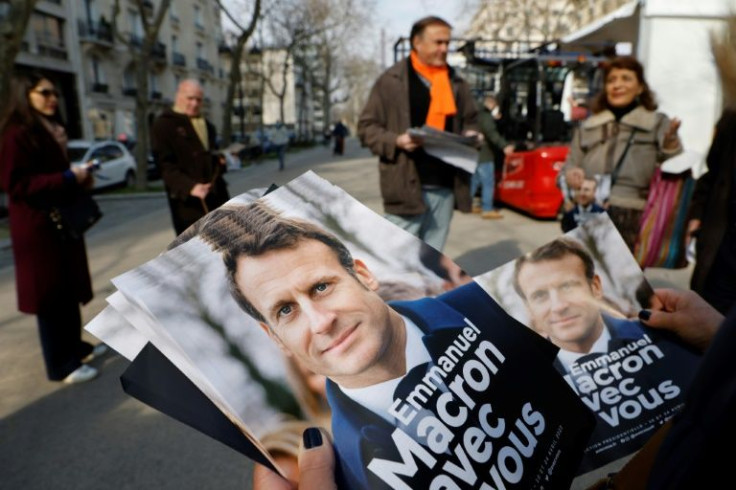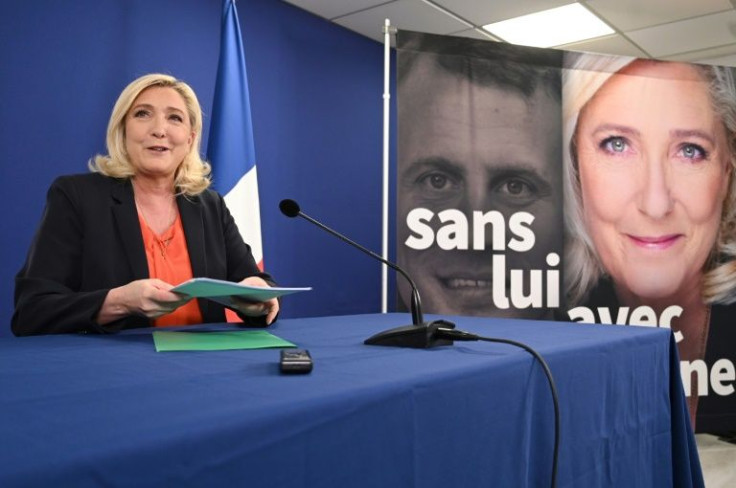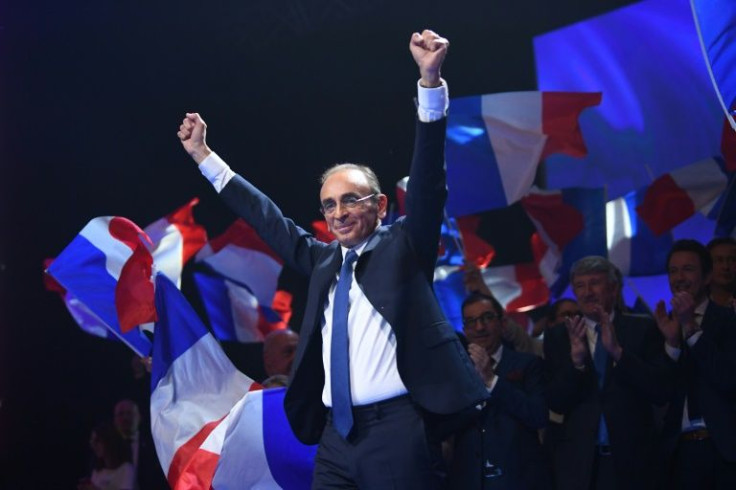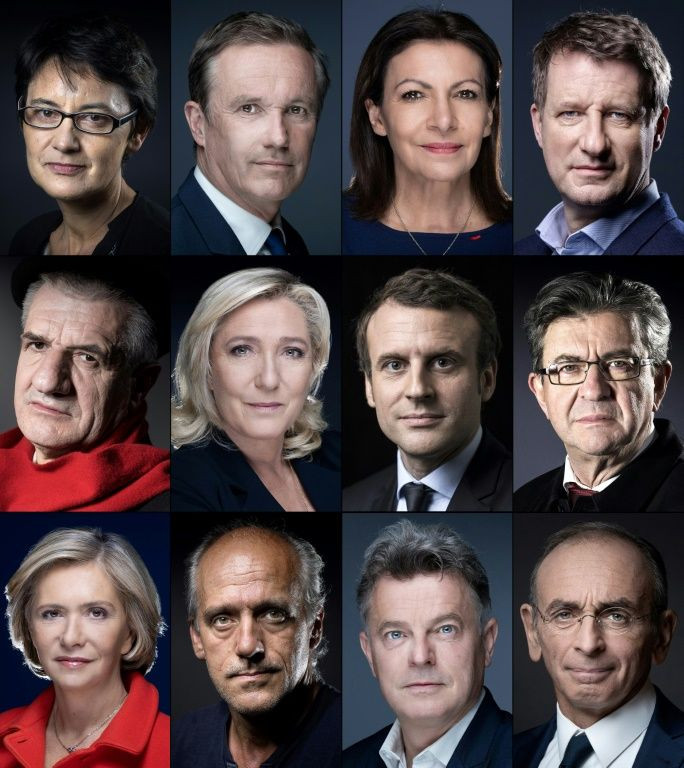The 12 Candidates Standing In France's Presidential Election
France's top constitutional authority published Monday the list of the 12 candidates registered to stand in the presidential election that begins on April 10.
All the main candidates managed to muster the 500 endorsements from elected French officials needed to confirm registration by the Constitutional Council.
Polls show that President Emmanuel Macron, elected in 2017, is the overwhelming favourite to come out on top in the second round run-off on April 24, after declaring his candidacy last week.

Veteran far-right leader Le Pen is making her third attempt for the presidency after reaching the second round in 2017, where she was trounced by Macron.
Macron appears to have highlighted Le Pen as his main rival, shifting his own policies to the right in a bid to woo voters from her National Rally party, which has fared badly in recent local elections -- prompting some in the party to question her leadership.
The journalist, TV pundit and now upstart candidate has won a significant following for his diatribes against immigration and the Muslim headscarf, drawing away droves of Le Pen supporters in the process.
He enjoyed an early surge in the polls with calls to restore France's lost grandeur, and while his numbers have softened he remains just behind Le Pen.

Dupont-Aignan, the eurosceptic head of the Rise Up France party, is the mayor of a Paris suburb who has taken quixotic tilts at the presidency since 2007, but scored in the low single-digits in his two previous runs.
He says his party is the true heir of General Charles de Gaulle and his push for French sovereignty, and has promised to crack down on migration and give "a kick in the butt to the lazy, slackers and free riders" who take advantage of France's social security system.
The head of the Ile-de-France region that includes Paris surprised many by winning the primary for the conservative Republicains party, becoming its first female candidate in a presidential election.
Pecresse, a budget minister under former president Nicolas Sarkozy, has accused Macron of fiscal profligacy and being soft on crime, but her campaign has failed to gain traction despite the Republicains' strong presence in local districts across France.

The former investment banker and economy minister under Socialist president Francois Hollande swept to power five years ago with a centrist platform and pledges to reform France's economy and spur growth.
He has largely remained popular while presenting himself as the dynamic leader of a "start-up nation" reasserting itself on the European and global stage.
Yet Macron's policies generated resentment among many who accused him of favouring the rich, and a fuel tax hike sparked the fiery "yellow vest" protests of 2018 and 2019 that forced him to make a series of tax and wage concessions.

The Socialist Party has been floundering since Hollande abandoned any attempt to seek a second term in 2017, after becoming one of the most unpopular presidents in recent history.
Hidalgo, who easily won re-election as Paris's mayor in 2020, has promised a more inclusive form of governing for the nation along with across-the-board pay rises for low-income workers.
But so far she has failed to replicate her popularity at the national level, with polls showing she might not even score five percent in the first round -- the threshold needed to have her campaign spending reimbursed under French law.
Former Greenpeace campaigner Jadot is hoping to transform the dazzling success the Greens enjoyed in local elections two years ago, saying the French are ready to embrace an environmental revolution.
He is pushing what he calls pragmatic policies to combat climate change instead of the more radical ruptures sought by some in his party, including an end to France's reliance on nuclear power.
The pugnacious leader of the France Unbowed party declared his candidacy months ago and currently leads among left-wing candidates in opinion polls, at around 12 percent of intentions to vote.
A political veteran famous for his tirades against globalisation and the "elites," Melenchon enjoys a fervent base of supporters who say traditional Socialists have lost touch with voters outside large cities.
But as France's political landscape has shifted to the right, Melenchon will probably struggle to match his success in 2017, when he obtained almost 20 percent of the vote in the first round.
The charismatic leader of France's Communist Party has seen his poll numbers mount in recent weeks, though still far from the force it was in previous decades.
Roussel has promised to increase taxes on companies and the highest earners to pay for pay rises for teachers, nurses and other low-pay professions, and the nationalisations of big banks and energy giants.
A Ford factory worker laid off when the site was shut down in 2019, Poutou is standing for the New Anti-Capitalist Party with a campaign promising to disarm the police and rebuild France's public administration after years of budget restrictions.
A Trotskyist economy teacher standing for the Workers' Struggle party, Arthaud is seeking the presidency for the third time.
She wants to raise the minimum wage to 2,000 euros ($2,180), outlaw job cuts by companies and lower the retirement age to 60 from 62.
Difficult to align with a specific political wing, the MP from the southwest Bearn region is a former shepherd known for going on a hunger strike to prevent a factory closure.
His Resist party wants to reduce the European Commission's role in French affairs, and encourage more young people to revive the countryside as a "Grand National Cause".
© Copyright AFP 2024. All rights reserved.





















